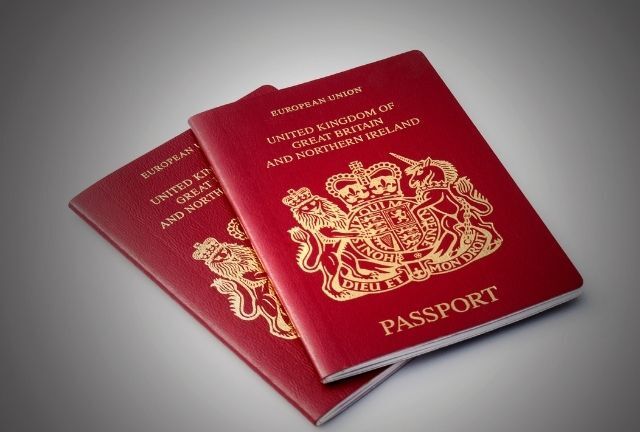Employers’ and Employees’ Rights and Obligations under Resolution 279/2020 of the MOHRE
By Imad Kassir , Samer Abou Said and Minal Nasseem
Introduction
Federal Law No. (8) of 1980, as amended, governs the UAE Labor Law (the “Law”) and sets out the grounds upon which an employment contract may be terminated. However, it did not provide clear guidance on the options that would be legally available in the current circumstances.
To address the growing concern within the community, the Ministry of Human Resources and Emiratisation issued the “Ministerial Resolution No. 279 of 2020 concerning the Employment Stability in Establishments of the Private Sector During the Application of Precautionary Measures to Control Novel Coronavirus Outbreak” (the “Resolution 279”). It should be noted that this resolution only applies to non-Emirati onshore employees and its validity is solely for the period during which precautionary measures are being applied.
Application to Free Zone Entities
It is unclear at this stage whether any guidance would be issued regarding free zone entities. However, it is recommended that free zone entities use the Resolution 279 as guidance in the event they wish implement any employment measures because they court might take it into consideration should a dispute arise between the employer and the employee.
Free Zone entities affected by the crisis would be still able to use termination for economic reasons as we explain below.
Termination for economic reasons
It is prevalent in the UAE that the termination of any employment contract for grounds other than those set out in Article 120 of the Law would be considered unfair, and consequently the employee would be entitled to a compensation that does not exceed the equivalent of three months’ salary.
However, Article 117 of the Law allows termination for a “valid” reason. The UAE Courts have accepted that an employer can terminate employment of an employee for economic reasons subject to the following:
- The employer should provide the employee with a notice, either in accordance with Article 117 or the notice period specified in the employment contract.
- The economic losses should be real, actual and substantiated by audited financial statements or credible internal financial documents which show that a significant economic loss occurred which justified the termination of the employee(s).
The employer carries the onus to prove such losses before the Court.
Re-organization of employment relationship based on Resolution 279
The Resolution provided onshore employers with an avenue to re-organize their employment relationship. Article 2 of the Resolution stipulates that employers in the private sector who have been affected by the precautionary measures to control Covid-19 may progressively
and subject to the consent
of the employee opt for the following options:
- Implement a remote working system / work from home system.
- Grant paid leave.
- Grand unpaid leave.
- Temporarily reduce salaries during the COVID-19 restrictive measures.
- Permanently reduce salaries.
The wording of this Article provides the order of actions which should be taken by the employers, as necessitated by their business, and indicates that temporary and then permanent reduction in salaries should be the last resort. Furthermore, a temporary reduction in salary shall be made in writing as an addendum to the labor contract per the template provided by Resolution 279 and will expire at the end of the term of the addendum or enforceability of the Resolution, whichever occurs first. On the other hand, a permanent reduction in salary requires the Ministry’s approval as per the applicable procedures for amending a labor contract.
Employee’s consent to use any of the options is required
Save for paid leave which can be split once by the employer pursuant to Article 76, Resolution 279 requires the consent of the employee for its other options. If an employee is not willing to accept a justified option offered by the employer, the employer may terminate the employee and give the employee end of service benefits. If the employee files a complaint against the employer, it is believed that the Court will take into consideration that the employer tried to avoid termination by relying on Resolution 279 in order to reduce or reject completely ordering unfair dismissal compensation.
Employer has to provide housing and other entitlements for terminated employees
Article 3 emphasizes that the employers will remain responsible towards the employees who have been made redundant as a result of the precautionary measures to control Covid-19 with regards to their housing and entitlements (other than wages) until they either leave the UAE or become authorized to work for someone else. If the employer distribution of the gross salary does not provide a separate allowance for housing as part of its package, it is unclear whether the employer will be or will not be obliged to provide housing. Moreover, employers should register the redundant employees on the Virtual Labor Market System to help them find alternate roles.
Adoption of measures under Resolution 279 should be gradual, justified and proportional
Resolution 279 requires that the employer gradually adapt the options it provides. Thus, if giving the employee paid leave saves the business, the employer may not resort to unpaid leave or the reduction of salary. Should a dispute arise between the employer and the employee regarding measures taken under Resolution 279, the employer should be able to justify that the measures it adopted were fair and proportional. If the employer fails to justify, the court is likely to order compensation to the employee.
Employees should pay attention that reduction of salary is proportional to the break-down of the salary
When entering into discussions with their employers, employees are recommended to pay attention that the addendum they sign to reduce their salaries includes a proportional distribution of the reduction. If the salary breakdown includes the basic wage and other allowances, the reduction should not be from the basic wage only because it would reduce their end of service gratuity which is calculated based on the basic wage.
Conclusion
If an action is required by an employer during this period with regards to their employees, the employer should follow the guidelines provided in Resolution 279, first by implementing a remote working system, if possible, then granting paid leave, followed by unpaid leave, if necessary. It is advised that employers should not rush to make temporary or permanent reductions in salaries unless it is justified and proportional.
“Contents of this article are for general informational purposes only. It is not intended as professional counsel and should not be used as such.”
















